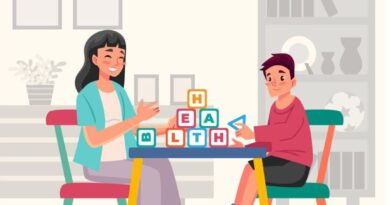Understanding ADHD: Causes, Symptoms, Impact & Treatment
Attention Deficit Hyperactivity Disorder (ADHD) is a common neurodevelopmental disorder that affects a significant number of children and often continues into adulthood. It can make everyday tasks more challenging due to symptoms like inattention, hyperactivity, and impulsiveness. This disorder can be difficult for both the child and their family, but with the right diagnosis and treatment, individuals with ADHD can lead fulfilling and successful lives.
What is ADHD?
Attention Deficit Hyperactivity Disorder is characterized by a persistent pattern of inattention, hyperactivity, and impulsivity that interferes with a child’s daily functioning. It is important to note that ADHD is not a result of poor parenting or a lack of discipline. It is a medical condition that involves differences in brain structure and function, particularly in the areas responsible for attention, impulse control, and executive functions. These differences affect how a person processes and reacts to the world around them.
Causes of ADHD
The exact cause of ADHD is not fully understood, but several factors are believed to contribute to its development:
- Genetics: ADHD tends to run in families, implying a genetic basis. Studies have shown that children with a parent or sibling who has ADHD are more likely to develop the condition themselves.
- Brain Structure and Function: Neuroimaging studies have shown that individuals with ADHD often have differences in the size and activity of certain brain structures, particularly the prefrontal cortex, which is responsible for attention and behavior regulation.
- Environmental Factors: Exposure to environmental toxins, such as lead, or prenatal exposure to tobacco smoke, alcohol, or drugs, can increase the likelihood of developing ADHD. Premature birth and low birth weight are also risk factors.
- Diet and Lifestyle: While no direct cause has been confirmed, some studies suggest that a poor diet, particularly one high in sugar or lacking essential nutrients, could exacerbate ADHD symptoms.
ADHD can lead to various mental health problems in adults as well. Adults with ADHD often experience high levels of stress due to difficulties in managing time, staying organized, or meeting responsibilities, which can affect work and relationships. Anxiety is also common, as the constant struggle to stay focused or complete tasks can create worry and tension. Depression may develop from repeated failures, low self-esteem, or social isolation. Additionally, some adults with ADHD may have had developmental delays in childhood, which can impact emotional regulation and coping skills later in life. Specific Learning disabilities may also co-occur, making academic and professional environments more challenging. Together, these issues can significantly affect an adult’s overall well-being and functioning, highlighting the importance of early diagnosis and proper management.
Symptoms of ADHD
ADHD symptoms vary from child to child, but the three core symptoms include:
- Inattention: Children with ADHD may have difficulty paying attention to details, making careless mistakes in schoolwork, or following instructions. They might seem forgetful, lose items frequently, and have trouble staying organized.
- Hyperactivity: This includes constant fidgeting, difficulty sitting still, and an overall sense of restlessness. Children may talk excessively, interrupt others, and have trouble staying quiet in appropriate situations.
- Impulsivity: Impulsive behavior can involve acting without thinking, difficulty waiting for a turn, and frequent interruptions in conversations or activities.
For a diagnosis of ADHD, these behaviors must be present for at least six months and cause significant disruption in the child’s life, affecting their academic performance, social interactions, or home life.
How ADHD Affects Child Behavior
Children with ADHD often struggle with managing their emotions, staying on task, and interacting appropriately with others. These challenges can lead to difficulties in school, where children may have trouble following instructions, staying focused during lessons, and completing assignments. Social relationships may also be affected, as impulsive actions and difficulty with impulse control can lead to misunderstandings with peers and teachers.
In the home, ADHD can create frustration for both the child and their parents. A child with ADHD may become easily frustrated, angry, or upset when they are unable to complete tasks or when they feel overwhelmed. They may also have difficulty following household rules, which can lead to conflicts with siblings and caregivers.
Treatment for ADHD
While there is no cure for ADHD, a combination of treatments can help manage the symptoms and improve a child’s functioning. The treatment plan often includes:
- Behavioral Therapy: Behavioral therapy focuses on teaching children with ADHD how to control their impulses, stay organized, and manage their emotions. Parents and teachers are often involved in these therapies to provide consistent support across different environments. It helps children develop coping strategies and positive behaviors.
- Cognitive Behavioral Therapy (CBT): CBT is a more structured form of therapy that helps children change negative thinking patterns. It can also help improve their problem-solving skills, self-esteem, and emotional control.
- Parent Training and Support: Parenting a child with ADHD can be challenging. Parent training programs teach parents how to implement structure, consistency, and positive reinforcement at home. This can help improve the child’s behavior and reduce stress for the whole family.
Seek Professionals Help
Seeking professional help from experienced ADHD therapists and psychologists is a crucial step in understanding ADHD and identifying the most effective treatment strategies.
Dr. R. K. Suri: Dr. Suri is a well-known clinical psychologist with decades of experience in psychological assessments, counselling, and ADHD management. His evidence-based approach helps patients lead structured and fulfilling lives. His evidence-based approach allows patients to live organized and happy lives.
MR. Utkarsh Yadav: Mr. Utkarsh Yadav is a counselling psychologist who specializes in cognitive and behavioral therapy for ADHD. She offers individualized therapies for children and adolescents, as well as adults battling with attention and impulse control, through child and adolescent counseling, ABA therapy, family counseling, and other means.
Mrs. Sheetal Chauhan: Mrs. Sheetal Chauhan is a specialized psychologist who uses evidence-based interventions, psychoeducation, and tailored therapeutic approaches. Individuals with ADHD can develop coping skills, enhance self-regulation, and improve overall well-being. She provides a safe, supportive, and structured environment where clients can explore their challenges, build strengths, and work towards meaningful progress.
Diagnostic Tests for ADHD
Diagnosing ADHD involves a comprehensive evaluation process. While there is no single test to diagnose ADHD, several tools and assessments can help mental health professionals make an accurate diagnosis:
- Behavioral Questionnaires and Rating Scales: These tools are completed by parents, teachers, and sometimes the child. They assess the frequency and severity of ADHD symptoms across different environments.
- Clinical Interviews: A trained clinician will conduct interviews with both the child and their family to understand the child’s behavior in various settings, including home and school.
- Observation: Direct observation of the child’s behavior in different settings can also help identify symptoms.
- Neuropsychological Testing: This can assess cognitive functions such as memory, attention, and problem-solving abilities.
Conclusion:
ADHD is a complex condition, but with early diagnosis, a combination of therapies, and proper support, children with ADHD can learn to manage their symptoms and thrive. The therapists at the Psychowellness Center play a crucial role in guiding families through this journey, helping both the child and their loved ones understand and cope with the challenges ADHD presents.
If you suspect your child may have ADHD, seeking professional help from experienced therapists and mental health professionals is the first step towards a better understanding of the condition and the most effective treatment options.
References:
American Psychiatric Association. (2013). Diagnostic and statistical manual of mental disorders (5th ed.). Arlington, VA: American Psychiatric Publishing.
Centers for Disease Control and Prevention. (2022). Attention-deficit/hyperactivity disorder (ADHD) fact sheet. Centers for Disease Control and Prevention. https://www.cdc.gov/ncbddd/adhd/facts.html
National Institute of Mental Health. (2022). Attention-deficit/hyperactivity disorder (ADHD). National Institutes of Health. https://www.nimh.nih.gov/health/topics/attention-deficit-hyperactivity-disorder-adhd
Mayo Clinic. (2021). Attention-deficit/hyperactivity disorder (ADHD) – Diagnosis and treatment. Mayo Foundation for Medical Education and Research. https://www.mayoclinic.org/diseases-conditions/adhd/diagnosis-treatment/drc-20350422
Barkley, R. A. (2015). ADHD and the nature of self-control. Guilford Press.




